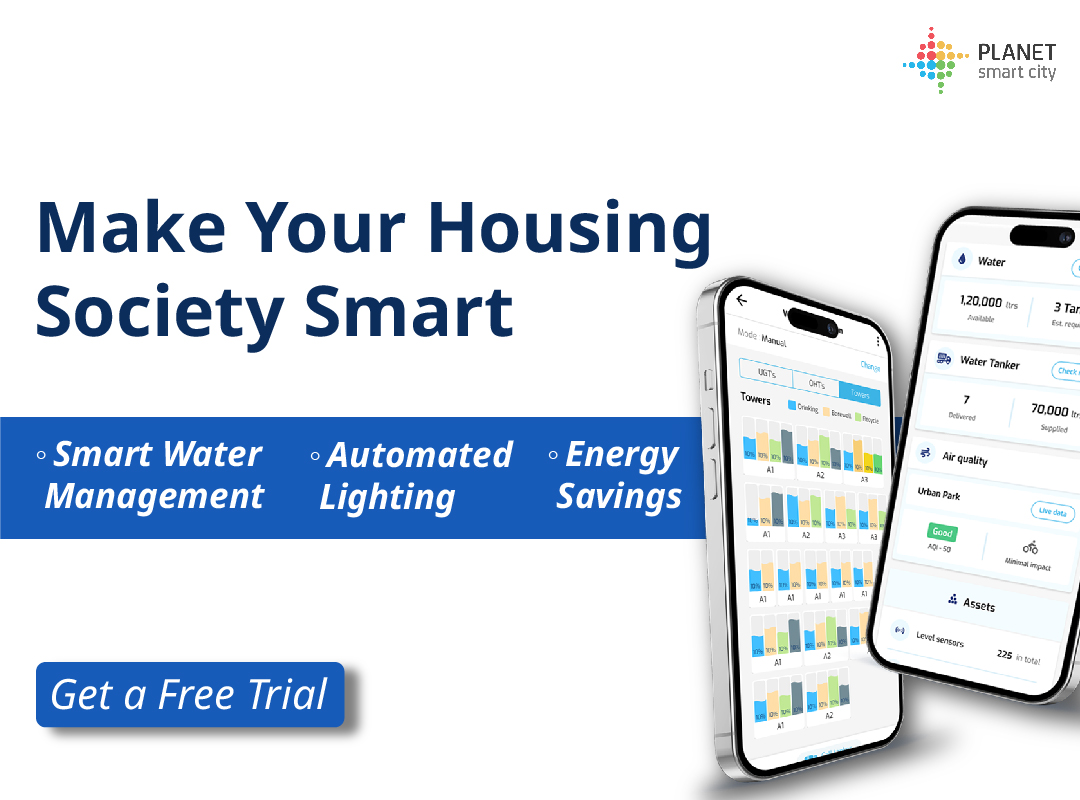Sustainable Water Management: Methods, Importance, and System Development

Water is an essential element for life to thrive. Yet, managing water resources effectively has become increasingly challenging. Balanced water use aligned with the environment’s natural replenishing capabilities is becoming rare.
Sustainable water management is a vital solution to this global challenge. As the global population keeps growing and climate change accelerates, the need for sustainable water management has never been more urgent. This approach ensures the responsible and equitable use of water resources today while preserving them for future generations.
What actionable steps can we take to improve water management? Let us explore how this approach can make a real difference in creating a sustainable future for all and what role smart IoT solutions like Planet SIM by Planet Smart City bring to the table.
What is Sustainable Water Management?
Sustainable water management refers to measures that help meet present water requirements without compromising future generations’ needs. The three key elements of this process include:
Efficiency: Making sure that water use is optimised, minimising waste.
Conservation: Protecting natural water sources and ensuring they’re used responsibly.
Equity: Ensuring fair distribution and access to water resources for all.


Need for Sustainable Water Management
Water scarcity has become a critical global issue, and experts project it will worsen significantly in the near future. Rapid urbanisation, climate change, and unsustainable water practices pose a greater risk to humanity than ever before.
Here are key reasons why sustainable water management must be implemented universally:
Global Water Scarcity: According to the United Nations, approximately 2 billion people live in countries facing high water stress. Over-extraction, pollution, and waste are depleting freshwater reserves and threatening people and ecosystems.
Climate Change: Rising temperatures and changing precipitation patterns are causing droughts and floods, both of which disrupt water availability and distribution.
Impact of Unsustainable Practices: Inefficient irrigation, industrial wasteful consumption, and leaking infrastructure accelerate the stress on already limited water resources.
Sustainable Water Management Methods
Using water wisely is key to addressing water scarcity while ensuring long-term sustainability. Here are some of the most effective methods:
Rainwater Harvesting
Rainwater harvesting turns rainy days into an opportunity to replenish water resources. Collecting and storing rainwater for later use reduces dependency on traditional water sources and proves especially useful during shortages in areas with erratic rainfall.
Smart Data Monitoring
Imagine having a smart digital assistant for your water usage. Smart monitoring tools track consumption, flag inefficiencies, and optimise water distribution. For instance, a housing society in Pune adopted such systems and reduced its reliance on water tankers by nearly 50%, saving costs and conserving resources.
Leak Detection Systems
A hidden leak can waste gallons of water daily. Real-time monitoring systems can detect and address leaks early. For example, Planet Smart City’s solutions flagged hidden pipe leaks in a Pune housing community, preventing prolonged wastage and lowering costs.
Eco-Friendly Construction Practices
Construction projects often consume vast amounts of water. Smart systems monitor water pumps and real-time water levels to avoid unnecessary wastage. These practices not only save costs but also provide valuable data to improve efficiency.
Developing Sustainable Water Management Systems
Building a sustainable water management system requires innovative technologies, efficient methods, and robust policies. Here are some ways to achieve this:
Advanced Irrigation Methods
In agriculture, advanced irrigation techniques like drip and sprinkler systems deliver water directly to the root zones of plants. These systems minimise evaporation and runoff, resulting in significant water savings.
Water Recycling
Recycling wastewater for irrigation, landscaping, or industrial use reduces pressure on freshwater supplies. Technologies that treat greywater for reuse are particularly effective, reducing overall consumption and promoting circular water usage.
Technology-Driven Solutions
Planet Smart City’s solution, Planet SIM, offers centralised monitoring and management of water usage across communities. Such solutions ensure that water is not only managed effectively but also conserved for the future.
How Can Planet Smart City Help?
Through Planet Smart City’s developing sustainable water management systems, the aim is to provide real-time data to monitor water usage, detect inefficiencies, and implement strategies for sustainable management. Here are some ways in which we ensure holistic water management:
Community Engagement: We encourage responsible water use, helping individuals and organisations adopt water-efficient practices that make a real difference.
Society Automation: Automation of common water pumps based on real-time water levels has helped us manage over 1.5 Billion litres of water efficiently!
Real-Time Water Monitoring: Our technology allows cities and communities to track water consumption continuously, flagging leaks or inefficient practices early on.
Real-Time Analytics and Forecasting: Make managing utilities and water easier for your society with accurate spending forecasting and tracking real-time usage.
Efficient Infrastructure: We help design infrastructure that minimises water wastage, whether it is through optimised irrigation or water-saving appliances.
Popular Searches
advantages of IoT based smart water management system | rain water harvesting in society | importance of wastewater treatment | IoT based water management system | how to clean water tank | what is meant by water management | water management challenges | water management system | how to prevent wastage of water | tips for energy conservation | measuring electricity | pre-scheduling tanker management system | problems faced by society




